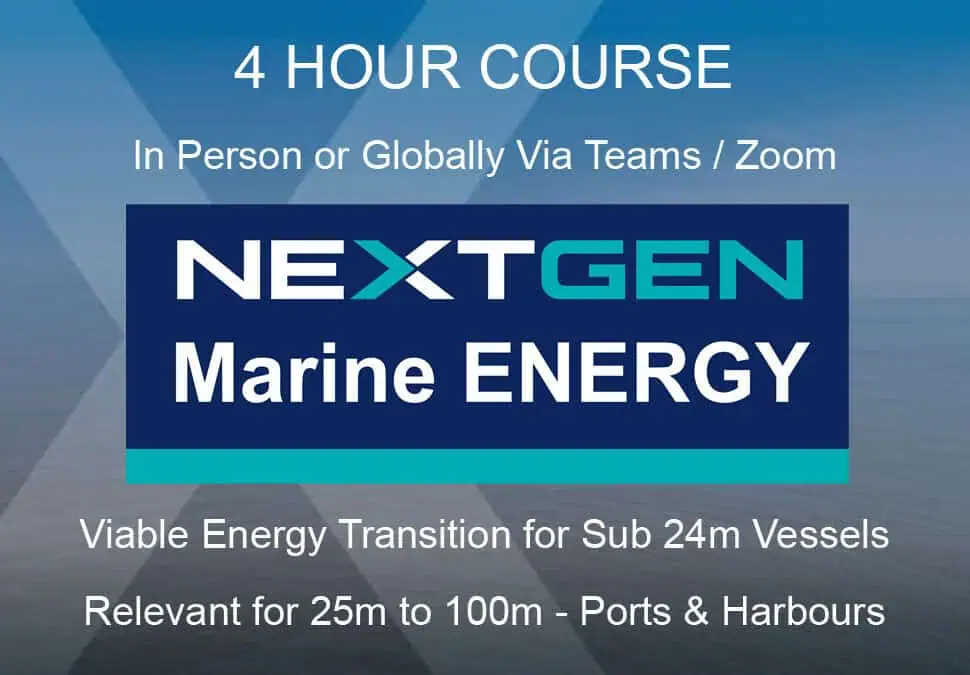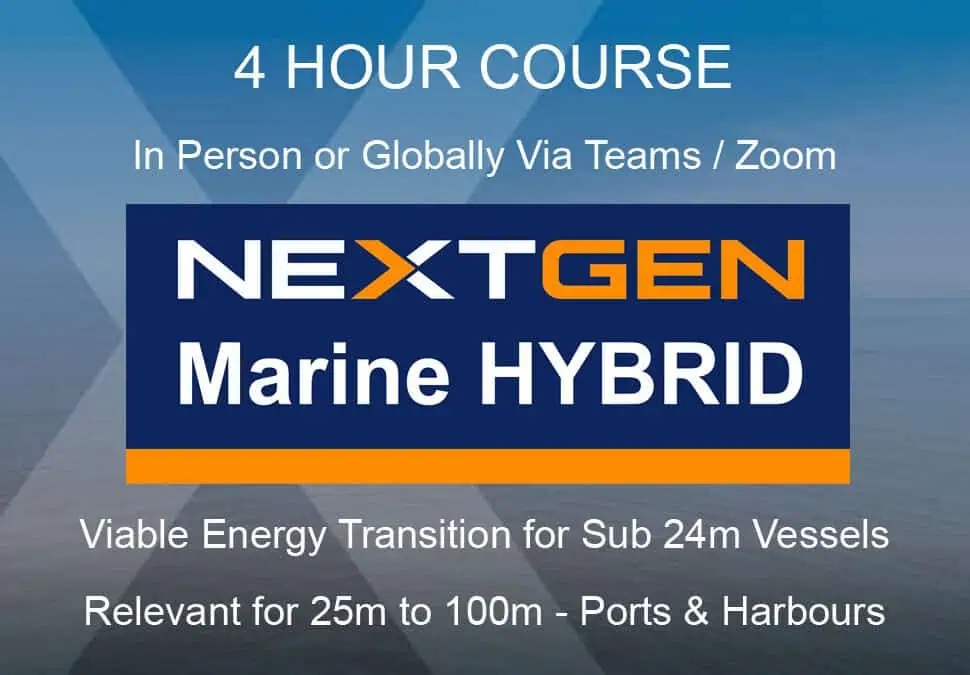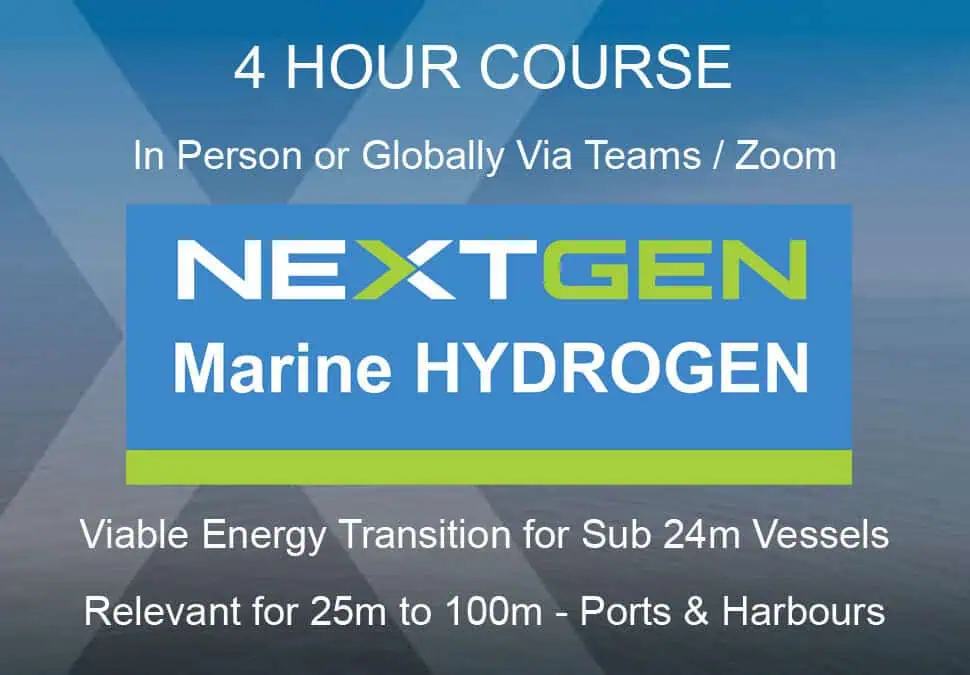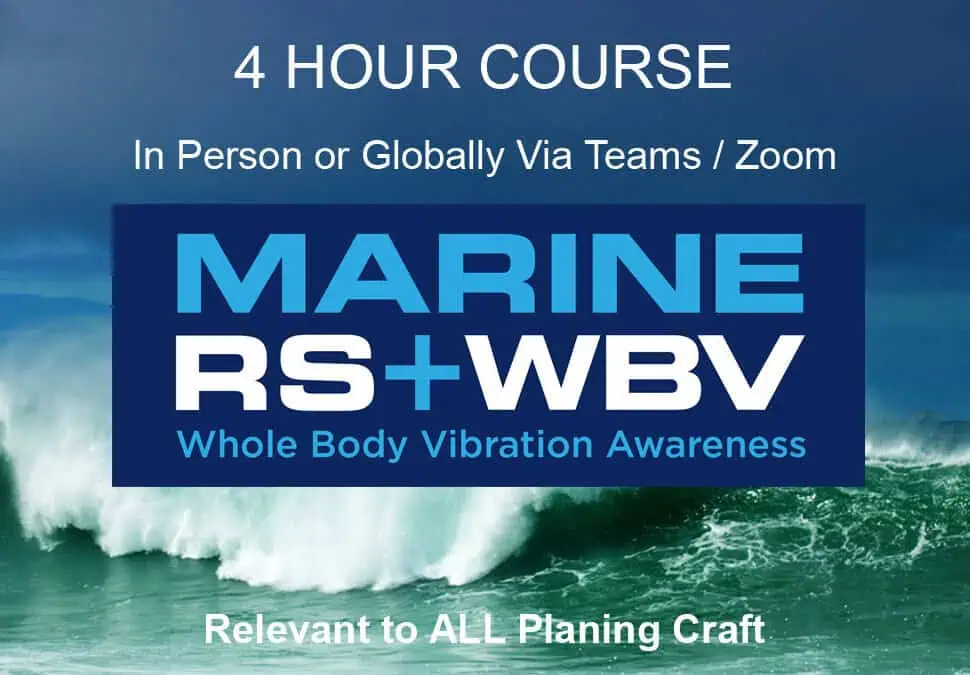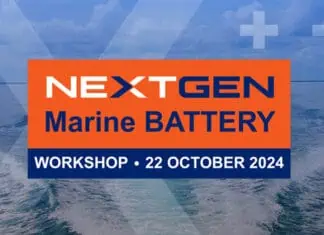NEXT GEN Training and NEXT GEN Workshops
NEXT GEN Training delivers unique half day and one day energy and safety courses. Focussed on sub 24m vessels, this knowledge is increasingly relevant for 25m to 100m vessels – plus the ports and harbours they operate from.
NEXT GEN Workshops enable groups of maritime professionals to come together and share experiences. The aim is to address burning issues in a changing world to improve efficiency along with the safety of crews and passengers.
Launched in 2022 and constantly evolving, this cutting edge course is focussed on viable technology available now or in the very near future. Developed in response to the need for simple, concise information that enables decision makers to plan for power and propulsion in a changing world.
WHO SHOULD ATTEND: All stakeholders involved in marine energy. From commercial and military organisations to leisure marine. Operators, OEMs, boat builders, refit yards, engineers, naval architects.
4 HOUR COURSE: In Person or via Teams / Zoom
SESSION 1: Overview of Marine Power & Propulsion
SESSION 2: Next Generation Energy Opportunities & Challenges
SESSION 3: Emerging Technology Timelines & Viability for Sub 24m
New for 2024, NEXT GEN Marine HYBRID brings together modified ICE with clean fuels, battery-electric and onshore infrastructure. With these here and now solutions, vessels can reduce emissions and improve fuel consumption – whilst extending engine maintenance periods and engine life.
WHO SHOULD ATTEND: Course is relevant to all sectors, from commercial and military organisations to leisure marine. Operators, OEMs, boat builders, refit yards, engineers, naval architects, ports & harbours.
4 HOUR COURSE: In Person or via Teams / Zoom
SESSION 1: Overview of Marine Hybrid & Energy Systems
SESSION 2: Battery-Electric Opportunities & Challenges
SESSION 3: Hybrid Viability & Timelines for Sub 24m
New for 2024, NEXT GEN Marine HYDROGEN delivers a practical approach to the potential of Hydrogen and derivatives for marine applications. Includes practical lessons from land transport. Real world case studies of Hydrogen vessels consider technology and system readiness along with regulations and safety.
WHO SHOULD ATTEND: Course is designed for all sectors, from commercial and military to ports and harbours. Operators, boat builders, refit yards, engineers, naval architects and safety specialists.
4 HOUR COURSE: In Person or via Teams / Zoom
SESSION 1: Overview of Hydrogen for Marine Applications
SESSION 2: Hydrogen & Derivatives Opportunities & Challenges
SESSION 3: Hydrogen Viability & Timelines for Sub 24m / 25 to 100m
Course delivers practical and current knowledge to improve on water health and safety. Dynamic sessions bring together industry best practice and international standards. In 2021 RS & WBV course developer John Haynes led a working group for the MCA that created MGN 436 – marine guidance on whole body vibration.
WHO SHOULD ATTEND: All stakeholders designing, operating and supporting marine operations on sea, estuaries or rivers. Onshore managers, crews and professional passengers on all types of planing craft.
4 HOUR COURSE: In Person or via Teams / Zoom
SESSION 1: Overview of Professional Boat Operations
SESSION 2: RS & WBV Awareness for On Water Crew
SESSION 3: RS & WBV Solutions for On Water Crew & Onshore Team
NEXT GEN Team

John Haynes
Managing Director
Email: john@shockmitigation.com

Contact NEXT GEN Marine
NEXT GEN Marine
Christchurch, Dorset, United Kingdom
Web : www.nextgen-marine.com
General Enquiries : info@shockmitigation.com
Operations & Accounts : info@shockmitigation.com
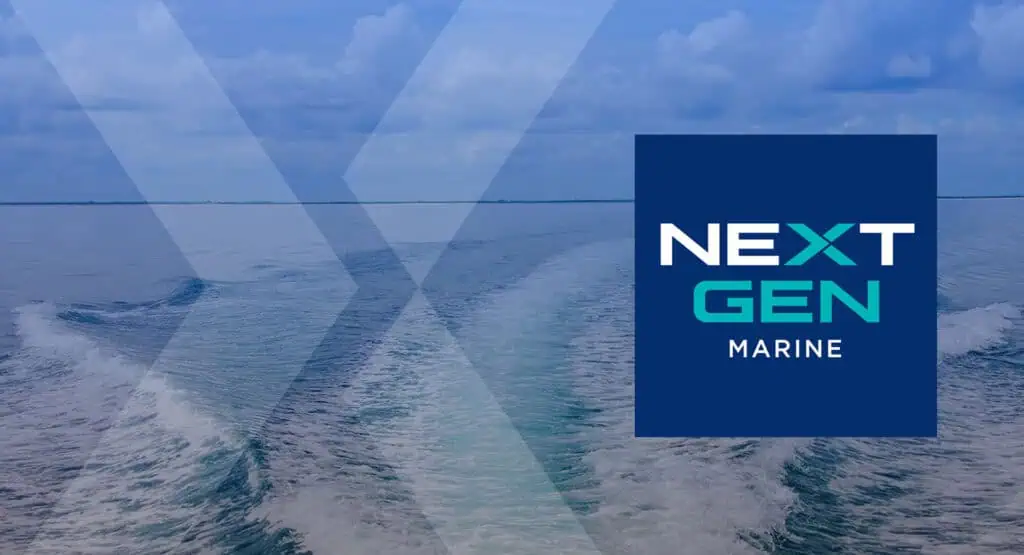
Latest Next Gen News
NEXT GEN Marine BATTERY Workshop
Copyright ©WorkBoat365.com




